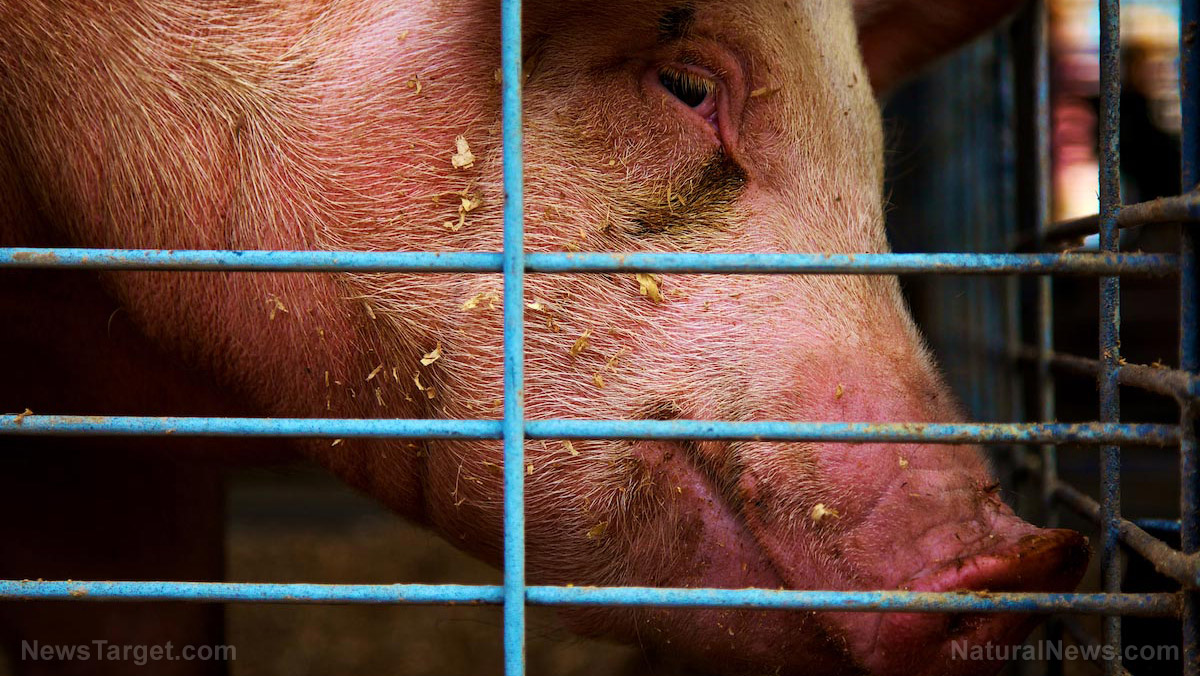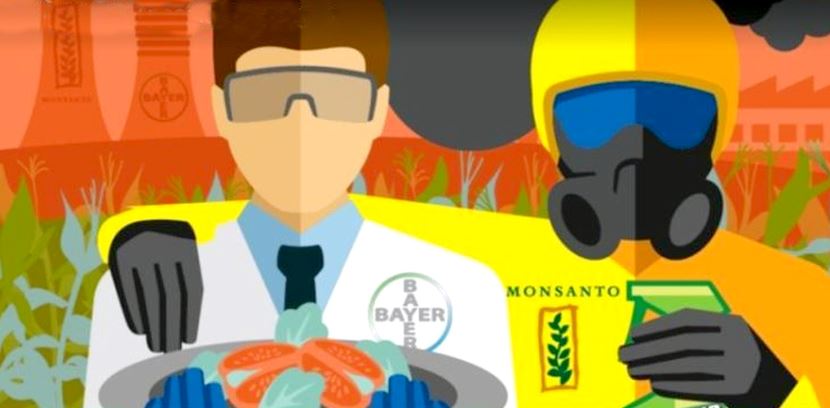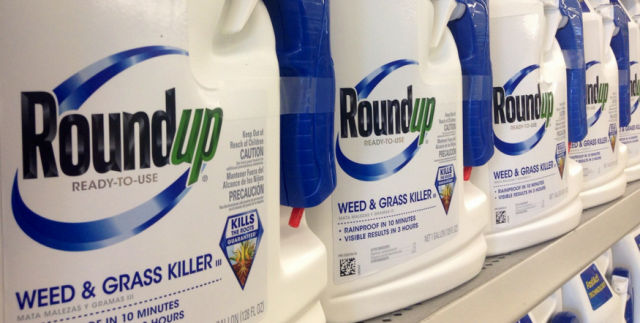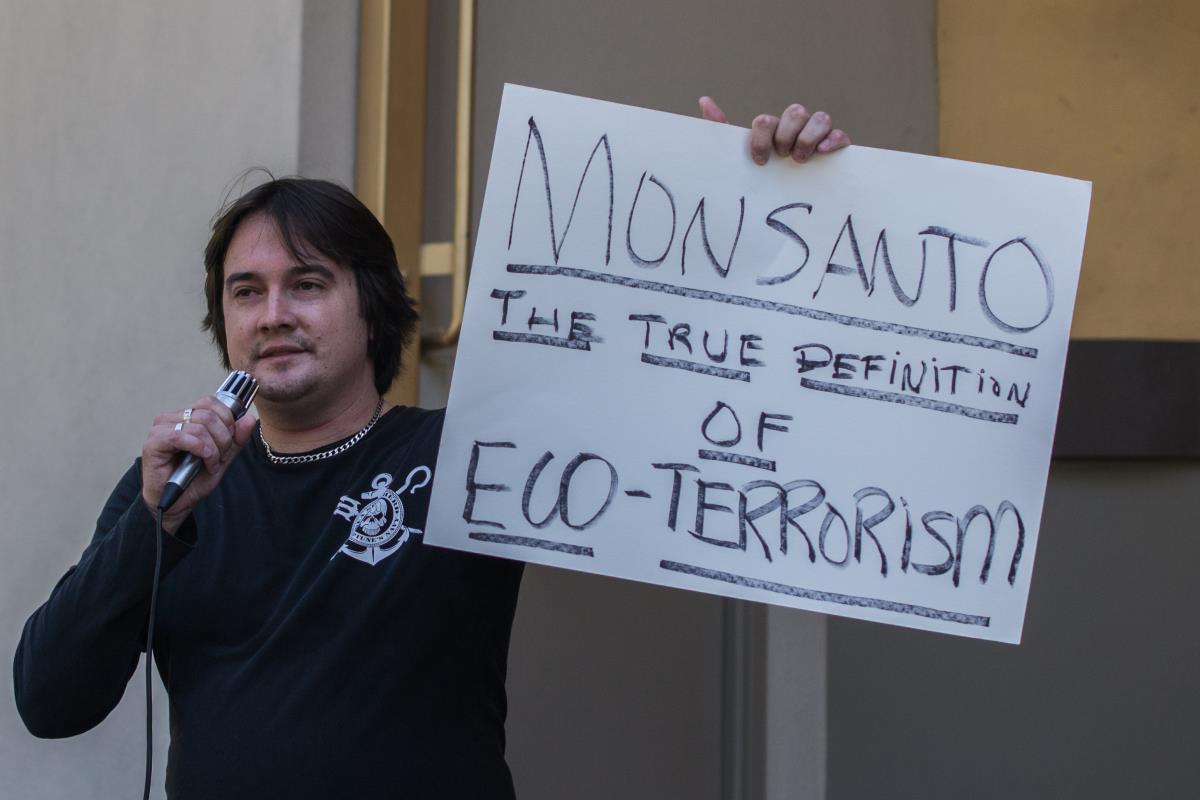Farmers and conservation groups suing the EPA for approving Monsanto’s “XtendiMax” pesticide
02/03/2017 / By David Gutierrez

A coalition of farmer and environmental groups has filed a lawsuit against the Environmental Protection Agency for failing to follow the law in approving Monsanto’s newest herbicide, “XtendiMax” (active ingredient dicamba), for spraying directly on a new generation of genetically modified crops.
The plaintiffs in the suit are the Center for Biological Diversity, Center for Food Safety, National Family Farm Coalition and the Pesticide Action Network.
“Federal regulators have abandoned the interests of farmers, the environment, and public health,” plaintiffs’ counsel George Kimbrell said. “We won’t allow our food to be dragged backward into a pesticide-soaked nightmare – not without a hell of a fight.”
The approval is expected to lead to a tenfold increase in the amount of dicamba sprayed. This will not even offset the use of other chemicals; the new herbicide is approved for use on soybean and cotton crops genetically engineered to resist both dicamba and glyphosate (Roundup). Thus, spraying of Roundup will continue.
Dicamba has been linked with cancer and birth defects, while glyphosate is classified by the World Health Organization as a “probable carcinogen.” Both have been shown to have devastating effects on wildlife and to contaminate water supplies.
Dicamba in particular is known to drift large distances from the fields where it is sprayed. Even prior to the latest approval, farmers in 10 states had already reported damage to thousands of acres of crops from dicamba use in nearby fields. In fall 2016, a farmer was shot dead in a dispute with another farmer over dicamba drift.
The lawsuit notes that although the EPA noted that increased dicamba use would place dozens of endangered species at risk, it failed to consult the U.S. Fish and Wildlife Service (which oversees endangered species) before issuing its decision.
“Once again the EPA is allowing staggering increases in pesticide use that will undoubtedly harm our nation’s most imperiled plants and animals,” said Nathan Donley of the Center for Biological Diversity. “Iconic species like endangered whooping cranes are known to visit soybean fields, and now they’d be exposed to this toxic herbicide at levels they’ve never seen before.”
The rationale for the increased dicamba use is to fight a new generation of “superweeds” that have evolved resistance to Roundup. But scientists are in consensus that it was the use of Roundup-resistant GMO crops and the attendant explosion in Roundup use that led to the evolution of the superweeds in the first place.
A 2016 study by the National Academy of Sciences noted the evolution of superweeds as one of many ways that GMOs had failed to keep their promises to farmers. Rather than reducing costs as promised, GMOs drove the evolution of superweeds that have now overrun large tracts of farmland, rendering them unusable and costing farmers enormously. The study noted that GMOs also increase, rather than decreasing use of herbicides and other dangerous chemicals, and that they have not increased farmers’ yields. Nor has there been sufficient research into the crops’ safety for health or the environment, the study concluded.
“The whole system of genetic engineering threatens plant and animal health,” said Margot McMillen of the National Family Farm Coalition. “Because of cross-pollination, the original non-GMO and wild weed genomes are fast disappearing, while the fight against weeds requires more and more potent chemicals. These new crops and their unintended consequences were predictable and avoidable, but the safe and healthy alternative offered by sustainable and organic agriculture has been ignored.”
Experts warn that increased dicamba use will merely lead to the evolution of still tougher superweeds. The lawsuit notes that the EPA’s plans to decrease this risk are all but useless, as they fail to place any limits on dicamba use and leave almost all implementation and enforcement decisions up to Monsanto. (RELATED: Stay informed about environmental science news at ENVIRON.news)
“Monsanto’s dicamba-resistant crop system will drive up sales of this outdated pesticide, spur more superweeds and damage vulnerable crops,” said Marcia Ishii-Eiteman, Ph.D., PAN senior scientist.
“If Trump’s administration wants to serve farmers, it will invest in healthy, long-lasting solutions to farmers’ needs, not pander to corporate greed.”
Sources:
Tagged Under: Dicamba, Monsanto, superweeds


















